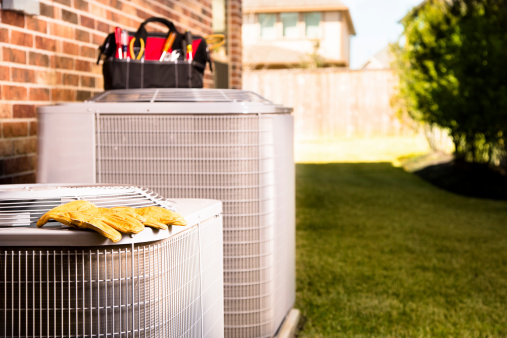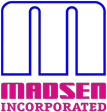
Did you know that heating cooling and ventilation together account for the largest energy expense for Americans — especially during the summer. (according to the US Department of Energy). So as you open the window to watch the flowers bloom and feel the warmer air that spring brings, it’s easy to forget the issues that the powerful summer heat can cause your system in just a few weeks.
Don’t wait until your AC unit is suddenly blowing hot air on a 90-degree day or stinking up the house with a bizarre odor to actually check it out. The best and safest way to ensure your unit is ready for summer’s worst is having a trained technician come take a look (we can help there), but there are also things you can do to keep your HVAC running efficiently through the hottest months and into fall. Here are 6 tips:
- Change your air filter every 30 days. A dirty air filter will cause your HVAC system to work a lot harder than necessary, preventing it from cooling your home efficiently. A simple filter swap can save you from costly utility bills — especially in the summer when your unit is already working overtime. For this reason, your filter changes may also be more frequent over the next couple of months, but a quick check will let you know for sure.
- Keep your outdoor condenser clean. Your outdoor unit is essential for AC efficiency and functionality. Check the area surrounding your HVAC system, and clear away any leaves, branches, or dirt that may have piled up around your unit. This is a simple, no-cost form of maintenance that should be done year-round to prevent issues from built-up debris blocking your system.
- Increase your thermostat. Keep your house warmer than usual when you’re away or out of the house for long periods of time. Not great at remembering stuff like this? Consider installing a programmable thermostat. This will allow you to set specific temperatures on timers to adjust automatically and cool or heat your space only as needed, which reduces utility costs and keeps your air conditioning system from using more energy than it needs to. We also recommend that you avoid setting your thermostat at a colder setting when you first start it up — it doesn’t cool your home any faster and could result in excessive cooling and extra expenses.
- Use or install fan systems. Fans are a simple, low-energy option for cooling down individual rooms. They maximize airflow and prevent excess heat from rising in the spring and summer months. And don’t forget to turn on the fan in the bathroom when you bath or shower — it will remove the extra heat and humidity from your home.
- Check your windows. As sun penetrates the glass of, it generates heat and causes the temperature inside to rise. Hanging drapes or blinds is an easy way to combat this problem. You can also prevent warm air from leaking into your home by sealing your windows and doors with caulk or weatherstripping for more full proof coverage.
- Schedule regular maintenance. Finally, the best way to maximize energy efficiency is routine HVAC maintenance. Research shows that your cooling system typically makes up about 60-70% of your summer electric bill. And if your unit is more than 15 years old, upgrading or replacing it could cut your energy costs by 20-40%. And that seriously adds up!
If you’re running into any issues with your HVAC system or want to get it checked out before summer, contact our professionals today. You can keep your cool, because we’ve got you covered.


